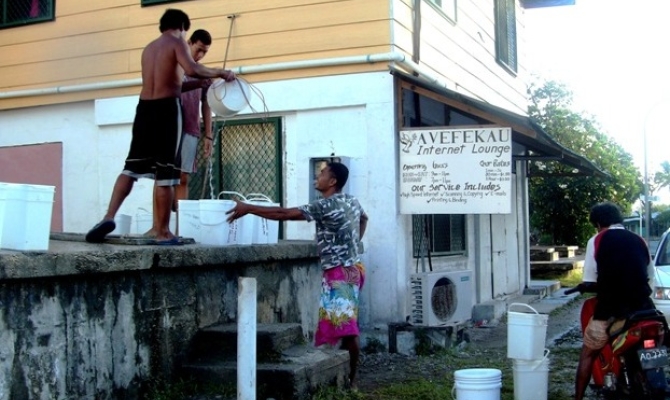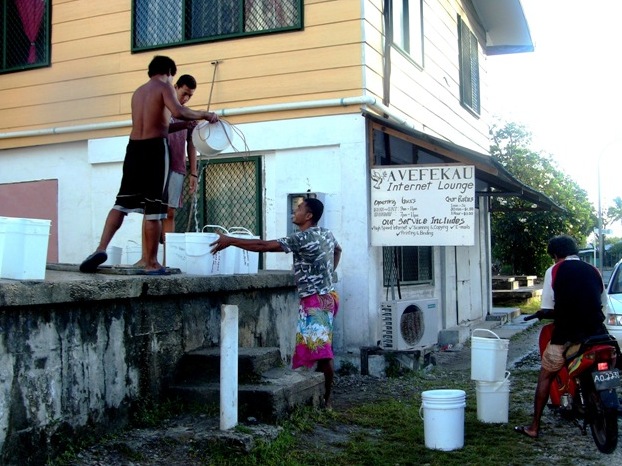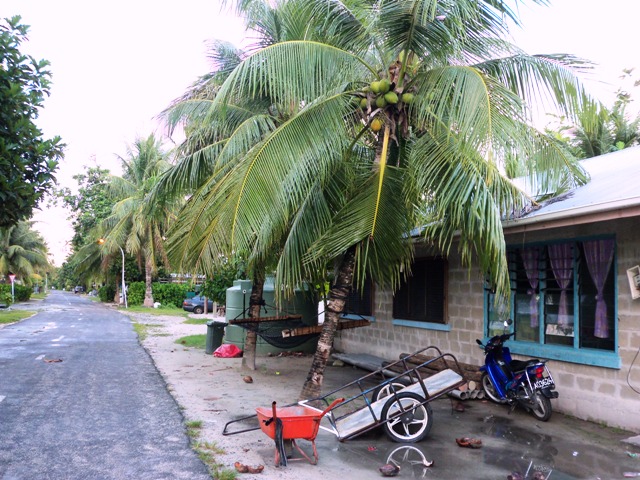
A new renewable energy project in Tuvalu takes the saying "Home is where the heart is" one green step further. Tuvalu will be building a renewable energy fale that will feature energy efficient appliances to demonstrate the benefits of living in a home with 'green' technology.
Once built, the fale will be open to people for visits to learn more about the benefits of having a green home, it will also serve as an educational tool for school children.
Estimated to cost USD 250,000 this project is funded under the Pacific Islands Greenhouse Gas Abatement through Renewable Energy project (PIGGAREP) coordinated by the Secretariat of the Pacific Regional Environment Programme (SPREP) in partnership with the United Nations Development Program (UNDP). It is funded by the Government of Denmark through the SIDS DOCK initiative, a renewable energy mechanism to fund activities in the Small Island Developing States.

Not only will this project help showcase the benefits of a renewable energy home with energy efficient appliances and sustainable waste and water management, it will also establish an energy efficient revolving fund to support those that would like to build similar homes or retrofit their current home to become more energy efficient.
"We are demonstrating to help people understand more about how an energy efficient and renewable energy home can help them," said Mafalu Lotolua, the General Manager of the Tuvalu Electricity Corporation.
"Instead of talking to people about what can be done we want to show them physically we believe this will bring about a positive impact as people will be able to see with their own eyes what a green home can do."

In 2005 it was estimated that 92% of the households had access to grid electricity, with seven of the eight island groups having a diesel-based grid power supply. With Tuvalu as one of the countries in the Pacific having the highest number of its population being able to access grid electricity there is a drain on the country's economy to supply diesel to meet the electricity demand.
A 10 year Renewable Energy, Energy Efficiency Master Plan aims to convert the national power generation from 96% diesel generated power to 100% renewable electricity by 2020. The implementation of this plan began in March 2011.
It is through this project that the Tuvalu Electric Corporation will promote the use of appropriate, proven, affordable and cost effective renewable energy technologies.
"We want to build this fale, as soon as the funds are disbursed, and will build immediately. The fale will be designed for flood protection, it will have ventilated open rooms, will be able to support photo voltaic panels and we'll equip it with energy efficient lighting and appliances. We are eager to have this project begin and show our people how good it can be!"
The funding for this project was approved in an agreement signed between SPREP and the UNDP on 6 May, 2013 at the SIDS DOCK Pacific regional meeting in Nadi, Fiji.